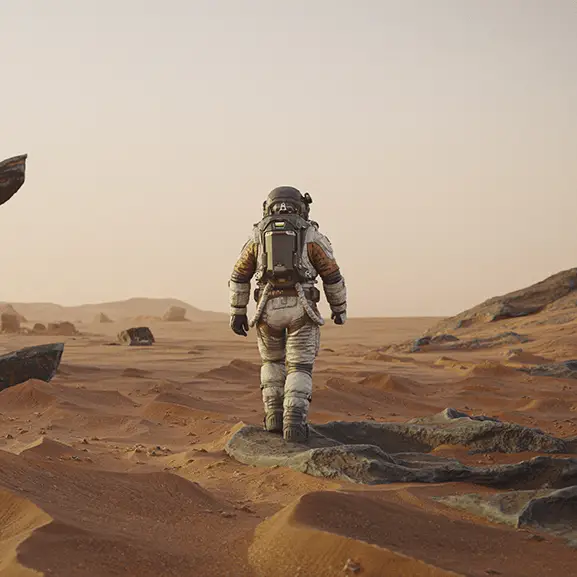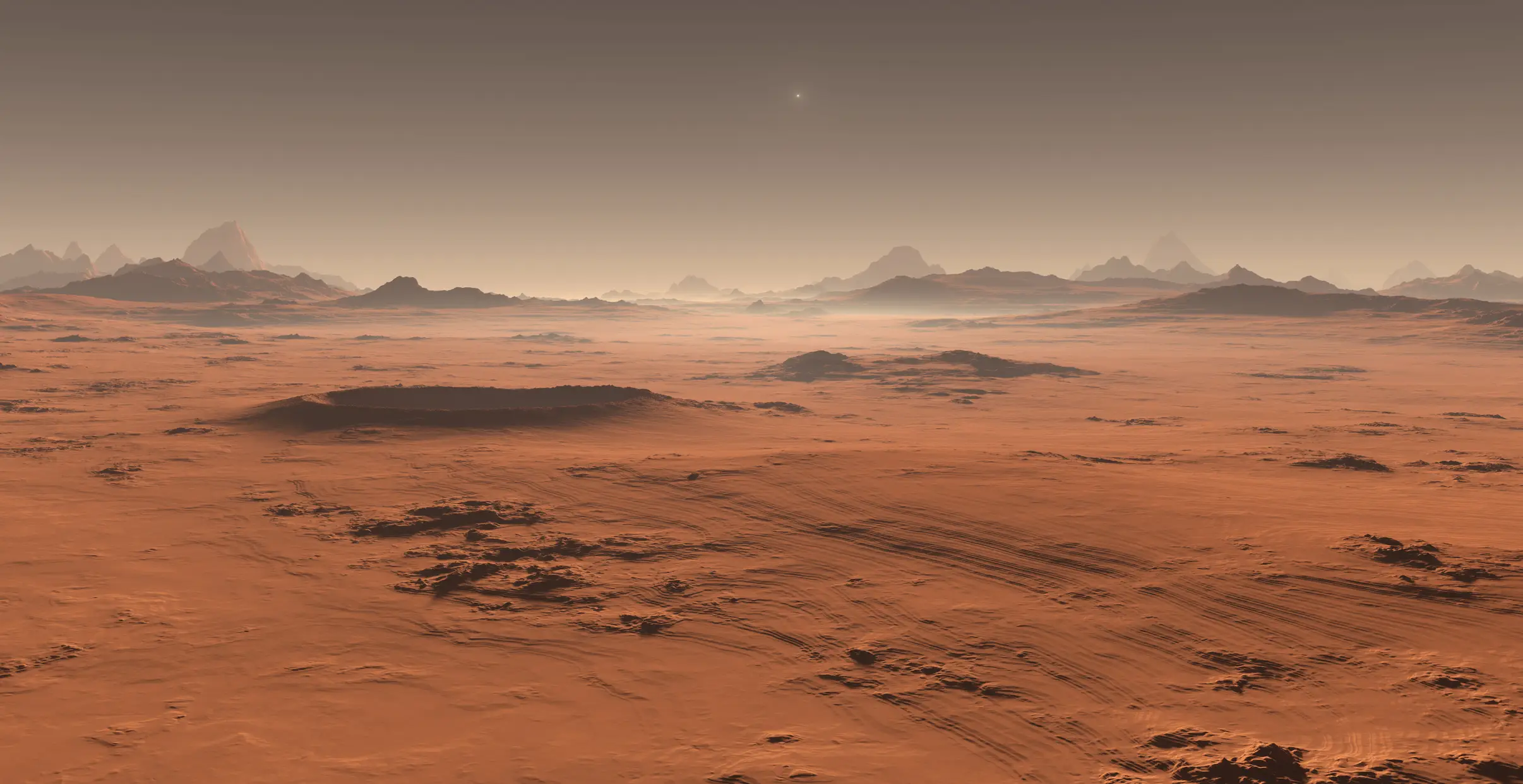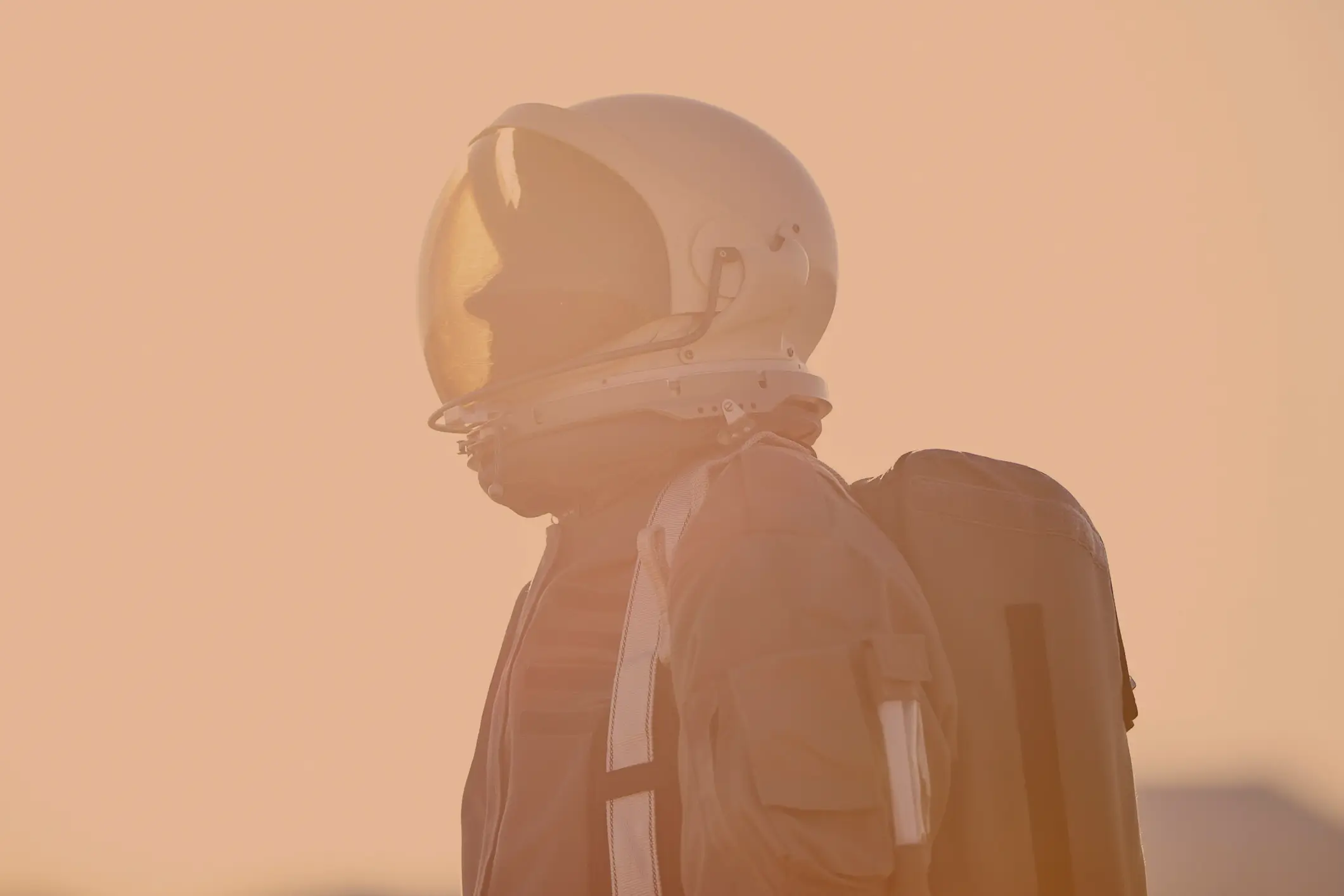
Ever wondered what it would be like to actually be one of the first humans to live on Mars?
Well, NASA is asking just the same question - it's trying to see how people would actually find life in a Mars base by setting up a year-long test here on Earth.
The experiment is going to happen for the second time, under the complicated title of the Crew Health and Performance Exploration Analog (CHAPEA). It'll see four people (after a hugely lengthy selection process) live in a recreation of a theoretical Mars base that's 1,700 square feet, all alone for an entire year.

Advert
The first four residents of the CHAPEA experiment went into isolation in June 2023, and the second set is set to start in spring 2025.
Those selected will spend a whole year in a mostly 3D-printed environment, which has been built from the sort of material and dust that NASA thinks will be usable on Mars.
It makes for a very red-brick look - which feels pretty Mars-appropriate, if you ask us. Isolation for an entire year sounds like a pretty challenging life, particularly as it's tricky to speak to friends and family back home. To really simulate life on Mars, there's a delay of up to 22 minutes one way when talking to people back home - so it could take nearly three-quarters of an hour for the crew to send a message to the outside world and hear back.
Much of the four's time will be spent helping with things like simulated spacewalks, and there are no windows, so they'll all be on Vitamin D supplements
But there are amenities - including an in-house suite of exercise options, from bikes to treadmills, and TVs for entertainment.

As you can probably imagine, requirements to be selected are stringent. You need to be a US resident aged between 30 and 55, and have at least two years of experience in a STEM job.
Needless to say, there will be stringent medical and fitness tests to ensure you're ready, along with a presumably quite detailed psychological evaluation to see how you'll hold up with an entire year with three strangers.
Most surprising of all, arguably, is the pay. The role reportedly brings in $10 per 'waking hour', meaning it'll end up at around $60,000 for the year. In all honesty, that wage sounds a little on the low side for such a tough year, but perhaps the 'helping humanity' angle will make that a lot easier to accept.
Applications are open right now, if you think it sounds like an interesting challenge.